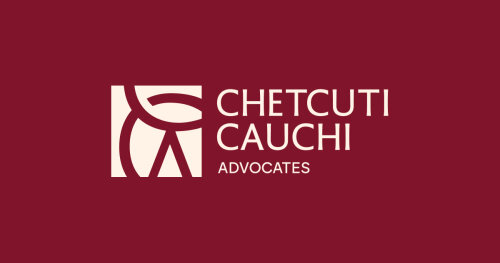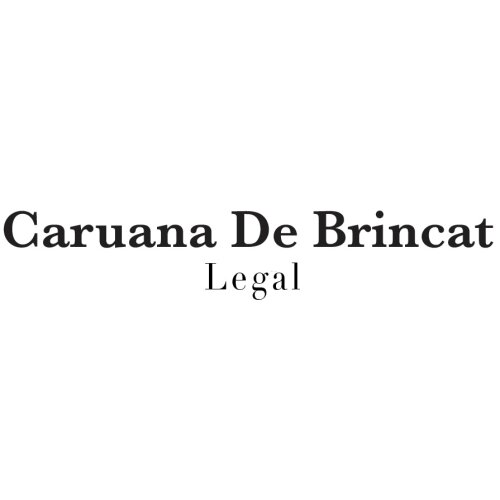Best Tax Increment Financing Lawyers in Malta
Share your needs with us, get contacted by law firms.
Free. Takes 2 min.
Or refine your search by selecting a city:
List of the best lawyers in Malta
About Tax Increment Financing Law in Malta
Tax Increment Financing (TIF) is a financial tool used in Malta to encourage investment in specific areas that require development or redevelopment. This form of financing enables municipalities to fund public infrastructure improvements by capturing future tax benefits resulting from increases in property values within a designated area. The concept revolves around using the additional tax revenue generated by the improved property values-known as the "tax increment"-to finance the initial costs of the project. Developing a clear framework for TIF is crucial to ensuring both successful urban development and the fair distribution of benefits in the community.
Why You May Need a Lawyer
Engaging a lawyer experienced in Tax Increment Financing can be crucial for a variety of reasons. Common situations include:
- Assisting municipalities or developers in navigating the legal complexities of establishing and managing a TIF district.
- Ensuring compliance with local and national laws when planning or implementing a TIF project.
- Protecting the interests of property owners or residents within a proposed TIF area.
- Providing guidance through any disputes or challenges during the project's lifecycle.
- Advising on potential financial risks and helping clients understand the implications of a TIF agreement.
Local Laws Overview
In Malta, TIF-related regulations are governed by local authorities operating under a national legal framework designed to promote responsible development. Key aspects of local laws relevant to TIF include:
- Requirements for public consultation and participation when proposing a TIF district.
- Criteria for determining the areas eligible for TIF-supported development, typically focusing on regions requiring significant revitalization.
- Regulations concerning financial transparency and accountability in the utilization of tax increments.
- Mandates for ongoing reporting and assessment of TIF project outcomes.
- Legal processes for addressing disputes or challenged project plans.
Frequently Asked Questions
What is Tax Increment Financing?
Tax Increment Financing is a public financing method that helps local governments stimulate economic development by funding infrastructure improvements with future tax revenues generated from increased property values.
Who can establish a TIF district in Malta?
Typically, local municipalities can establish a TIF district with approval from relevant authorities, following specific legal and regulatory requirements.
How are TIF funds typically used?
TIF funds are primarily used for infrastructure developments, including roads, utilities, sanitation systems, and other public works intended to bolster economic growth in the designated area.
What are the benefits of utilizing TIF?
TIF allows municipalities to attract private investment, tackle blight, and stimulate local economies without initially raising taxes, relying instead on future tax increments.
How does TIF impact property owners?
Property owners may benefit from increased property values, improved infrastructure, and heightened economic activity. However, they should be mindful of potential tax increases following value appreciation.
Can TIF be used for residential development?
While generally used for commercial projects, TIF can also support residential development, particularly in areas needing revitalization or where housing shortages exist.
Are there risks associated with TIF?
Risks include potentially overestimating future tax increments, leading to insufficient funds to cover TIF obligations, and political or community opposition to proposed projects.
What is the role of public participation in TIF projects?
Public participation is crucial for transparency and accountability; it typically involves community meetings, hearings, and opportunities for public feedback.
How is the success of a TIF project measured?
Success is often measured by increased property values, successful completion of infrastructure projects, and long-term economic benefits to the community.
Do TIF funds affect school or public service funding?
TIF can impact allocations to schools and other services since it diverts tax increments for project funding. Mitigation strategies are often implemented to minimize negative impacts.
Additional Resources
For more information on Tax Increment Financing in Malta, consider reaching out to:
- The Planning Authority, which oversees urban development initiatives.
- The local municipal government office, which handles TIF proposals and projects directly.
- Private consultancy firms specializing in infrastructure development and public financing.
- Law firms with expertise in Maltese real estate and infrastructure law.
Next Steps
If you require legal assistance with Tax Increment Financing, consider the following steps:
- Research and select an experienced attorney with a proven track record in TIF projects.
- Prepare any pertinent documentation or information related to your property or project.
- Schedule a consultation to discuss your specific needs, legal questions, and potential courses of action.
- Evaluate the attorney's advice and decide on the best strategy moving forward, whether it involves negotiation, consultation, or legal representation.
Lawzana helps you find the best lawyers and law firms in Malta through a curated and pre-screened list of qualified legal professionals. Our platform offers rankings and detailed profiles of attorneys and law firms, allowing you to compare based on practice areas, including Tax Increment Financing, experience, and client feedback.
Each profile includes a description of the firm's areas of practice, client reviews, team members and partners, year of establishment, spoken languages, office locations, contact information, social media presence, and any published articles or resources. Most firms on our platform speak English and are experienced in both local and international legal matters.
Get a quote from top-rated law firms in Malta — quickly, securely, and without unnecessary hassle.
Disclaimer:
The information provided on this page is for general informational purposes only and does not constitute legal advice. While we strive to ensure the accuracy and relevance of the content, legal information may change over time, and interpretations of the law can vary. You should always consult with a qualified legal professional for advice specific to your situation.
We disclaim all liability for actions taken or not taken based on the content of this page. If you believe any information is incorrect or outdated, please contact us, and we will review and update it where appropriate.
Browse tax increment financing law firms by city in Malta
Refine your search by selecting a city.















